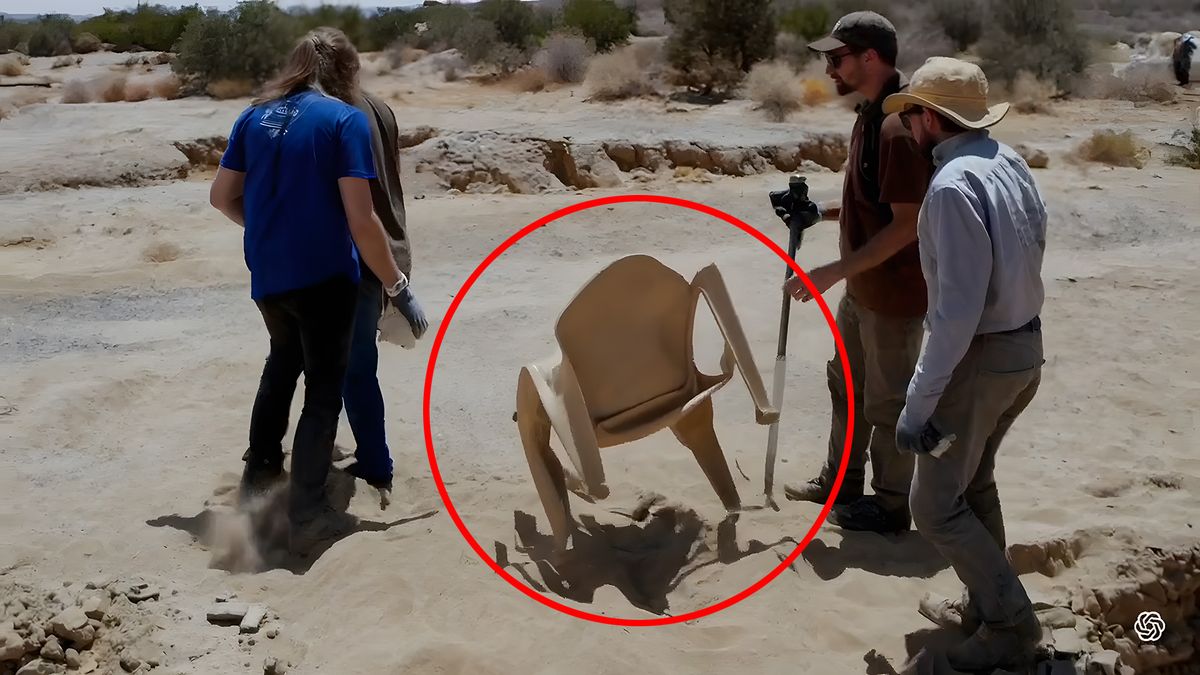OpenAI's Sora AI Model: Lifelike Minute-Long Videos with Critical Weaknesses
核心概念
The author argues that OpenAI's Sora AI model can create lifelike minute-long videos but has critical weaknesses in simulating complex scenes and understanding cause and effect.
摘要
OpenAI introduced the Sora AI model capable of generating high-quality, one-minute-long videos based on user prompts. Despite its ability to create complex scenes accurately, the model struggles with physics simulation and cause-and-effect scenarios. The company plans to limit initial access to specific professionals for feedback and improvement suggestions. However, concerns arise regarding potential job displacement due to generative AI advancements impacting various industries like journalism and architecture.
客製化摘要
使用 AI 重寫
產生引用格式
翻譯原文
翻譯成其他語言
產生心智圖
從原文內容
前往原文
www.windowscentral.com
Watch out, Hollywood! OpenAI's latest model generates lifelike minute-long AI videos, but it has some critical weaknesses
統計資料
OpenAI debuts new AI model named Sora for video generation.
Sora can create up to one-minute-long videos while maintaining quality.
The model faces challenges in simulating complex scenes and understanding cause and effect.
Microsoft's Bill Gates and OpenAI's Sam Altman discuss ChatGPT maker developments.
Sam Altman mentions the possibility of adding video capabilities to the chatbot.
Sora is designed for professionals like visual artists, filmmakers, and designers initially.
The model excels at generating complex scenes but struggles with spatial details.
Generative AI tools like Microsoft Copilot are impacting job security in journalism.
Microsoft introduces programs to prepare journalists for an AI-driven newsroom future.
OpenAI aims to prevent misinformation, hateful content, and bias before general availability of the Sora model.
引述
從以下內容提煉的關鍵洞見
by Kevin Okemwa 於 www.windowscentral.com 02-16-2024
https://www.windowscentral.com/software-apps/openai-sora-generates-lifelike-minute-long-ai-videos
深入探究
How might generative AI advancements impact other creative industries beyond film
Generative AI advancements, like the text-to-video model Sora developed by OpenAI, have the potential to impact various creative industries beyond film. For example, in the field of graphic design and advertising, AI-generated tools could streamline the process of creating visual content for marketing campaigns. This could lead to increased efficiency and cost-effectiveness in producing advertisements and branding materials. Additionally, in fields such as architecture and interior design, AI models could assist professionals in generating realistic 3D renderings of spaces based on textual descriptions or prompts. This automation can speed up the design process and help architects visualize their ideas more effectively.
Furthermore, generative AI has implications for music composition and production. AI algorithms can analyze existing musical compositions to generate new pieces that mimic certain styles or genres. This technology could be utilized by musicians and composers to explore innovative sounds or assist with creating background scores for films or video games. Overall, as generative AI continues to advance, it is likely to revolutionize how creativity is approached across a wide range of industries beyond just filmmaking.
What ethical considerations should be prioritized when developing advanced AI models like Sora
When developing advanced AI models like Sora with text-to-video capabilities, several ethical considerations should be prioritized to ensure responsible use of this technology. Firstly, transparency about the limitations of these models is crucial to prevent misinformation or false expectations among users. OpenAI's acknowledgment of Sora's weaknesses in simulating complex scenes demonstrates a commitment to honesty about what the model can realistically achieve.
Secondly, safeguarding against bias is essential when training AI models like Sora. Biases present in training data can perpetuate harmful stereotypes or discriminatory outcomes in generated content. Implementing rigorous testing protocols and diverse datasets can help mitigate bias within these systems.
Moreover, privacy concerns must be addressed when deploying advanced AI models that generate personalized content based on user input. Clear guidelines on data usage and consent are necessary to protect user information from misuse or unauthorized access.
Overall, ethical considerations such as transparency, bias mitigation, and privacy protection are paramount when developing sophisticated AI technologies like Sora to ensure they benefit society responsibly.
How can society adapt to potential job displacement caused by increasing automation through artificial intelligence
As society faces potential job displacement caused by increasing automation through artificial intelligence technologies like generative AI models such as Sora from OpenAI,
several strategies can help individuals adapt to these changes effectively.
Firstly,
investing in education
and lifelong learning programs focused on emerging technologies
can equip workers with skills needed for roles that complement rather than compete with automation.
By fostering a culture of continuous learning,
individuals can stay ahead of technological advancements
and remain relevant in an evolving job market.
Additionally,
policies supporting reskilling initiatives
and workforce development programs
can facilitate smooth transitions for workers displaced by automation.
Collaboration between governments,
educational institutions,
and private sector organizations
is essential for designing comprehensive retraining programs tailored towards future job demands.
Furthermore,
encouraging entrepreneurship
and innovation among individuals affected by job displacement
can create opportunities for new business ventures
that leverage emerging technologies instead of being replaced by them.
By promoting an entrepreneurial mindset
and providing resources for startup growth,
society can harness the potential benefits
of automation while mitigating its disruptive effects on traditional employment sectors.
0
